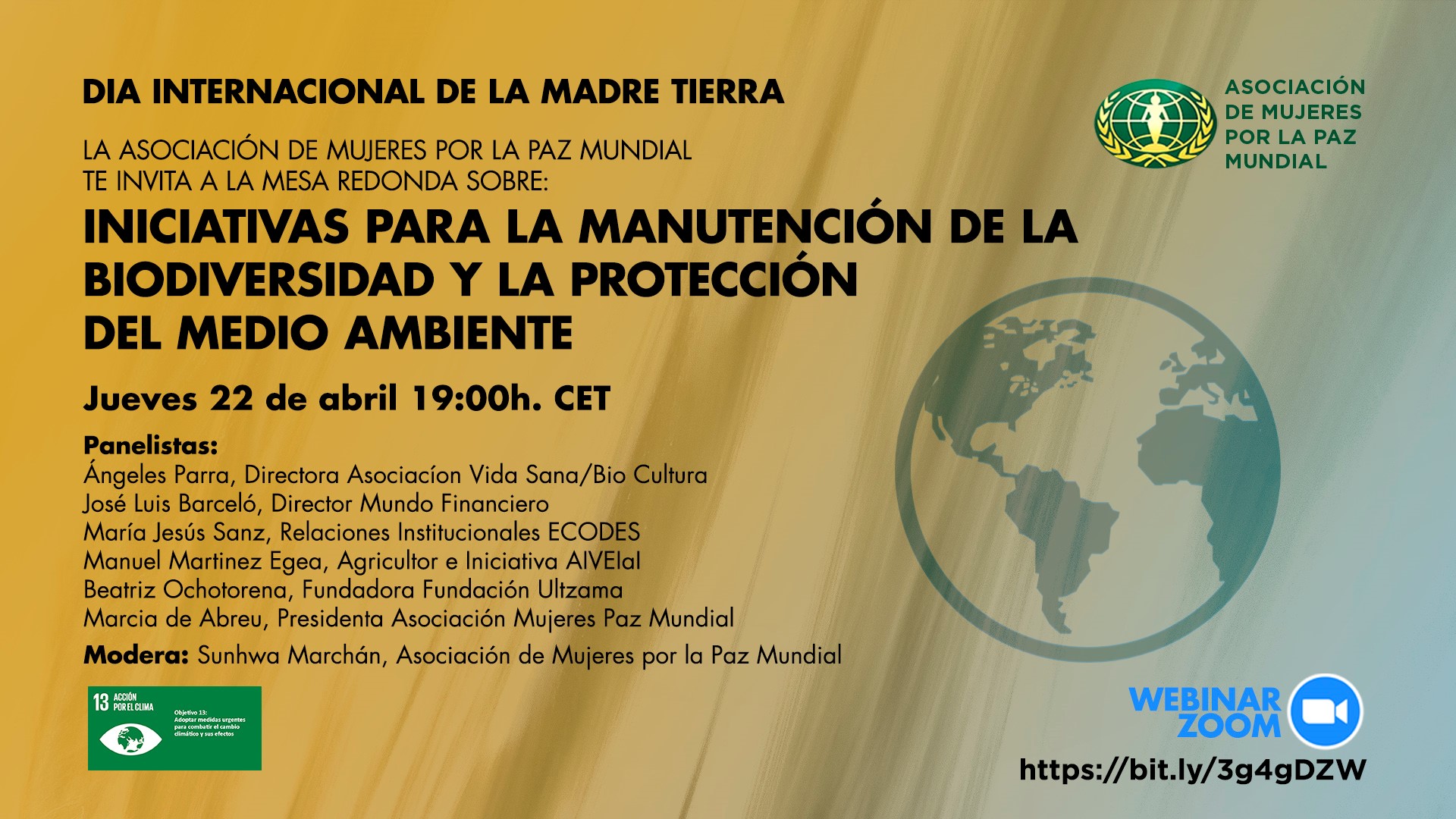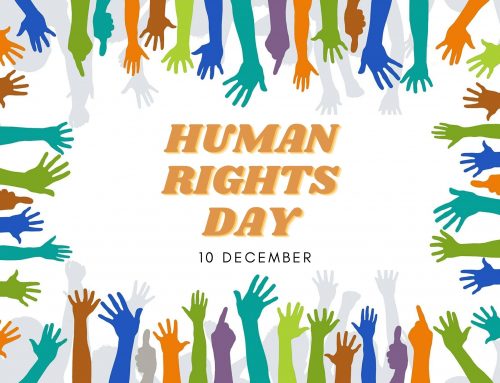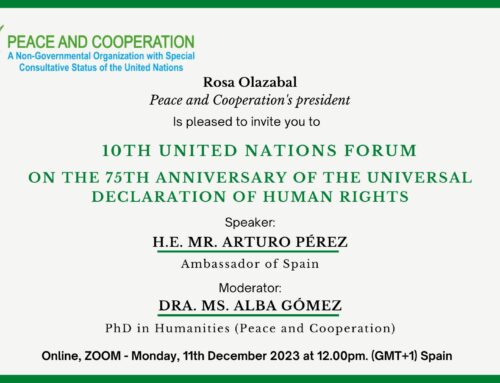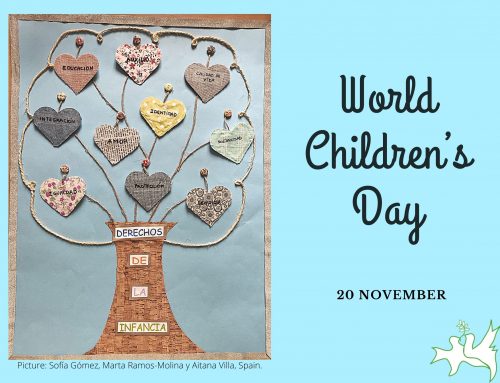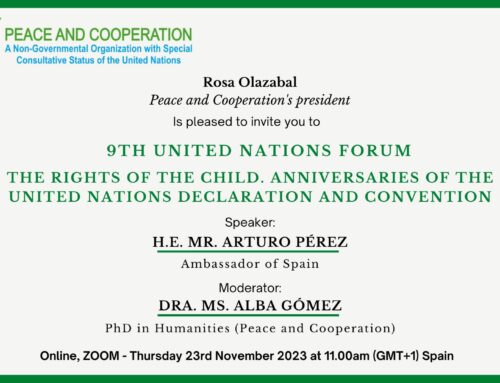On the celebration of Earth Day, the Association of Women for World Peace gathered eight speakers to present initiatives for the maintenance of biodiversity and the protection of the environment. These speakers were: Ángeles Parra, José Luis Barceló, María Jesús Sanz, Manuel Martinez Egea, Beatriz Ochotorena, Marcia de Abreu and moderated by Sara Marchán, from the Association of Women for World Peace.
First of all, Ángeles Parra García, director of BioCultura, president of VidaSana association and director of the organic festival of the childhood MamaTerra, the organic production to preserve the Earth and the health is promoted. Through organic production, the care and preservation of biodiversity are promoted. Ángeles showed how organic production is manufactured through producers, distributors, or consumers can make the world more sustainable.
On the other side, José Luis Barceló, Director of Mundo Financiero, also mentioned some aspects of the great impact of human consumption on the Earth and showed some strategies to preserve the planet in the process of urbanization and depopulation in other areas. He also urged to search for a development model which enables growth in both developed and developing countries.
María Jesús Sanz, director of Public Relations ECODES, explained the project “Trees for the climate”, and how through the simple action of planting a tree a great change can be obtained, as well as mobilizing citizens and society towards preservation of biodiversity. ECODES has proposed to highlight the cultivation of 3 million trees to show all that trees contribute.
Another initiative raised by Manuel Martínez Egea through his platform AIVEIaI, is the return of inspiration to fight concentration in big cities. It also looks for the return of social capital through jobs and education and looks for the return of the natural capital to recover biodiversity, to regain soil and water quality, and finally, the return of economic capital through organic agriculture.
Beatriz Ochotorena, Founder of Ultzama foundation, promotes rural zones through her foundation, and through her farmhouse and slow-food school, which promotes cultural gastronomy and education in these fields, from learning about the process of elaboration of milk to the creation of cheese to value the importance of the primary sector and optimize the use of raw materials.
From the fashion sector, Marcia de Abreu, President of the Association of Women for World Peace, finished the colloquium talking about the project Giving for Food, an initiative which is based in circular mode. This project is based on renewable energies, eliminating waste and contamination from the design to its fabrication. It also advocated for reuse to reduce the quantity of waste to protect biodiversity and looks for a more sustainable production using renewable sources.
All these projects and initiatives which are both public and private in different fields promote a much sustainable and healthy way of living, at the same time as raising public and environmental awareness.
Carolina Sánchez Caminal, Student Intern.
Peace and Cooperation

